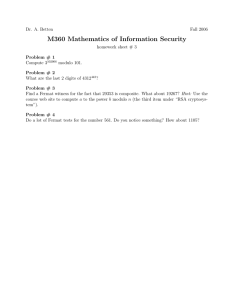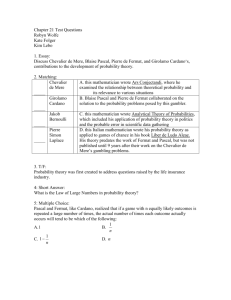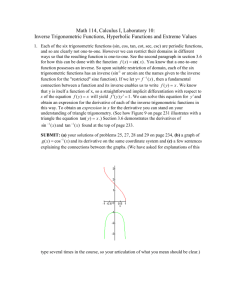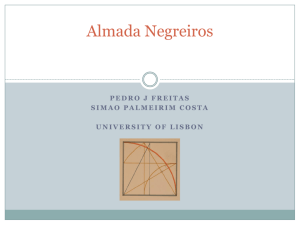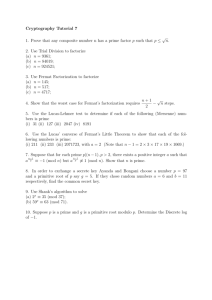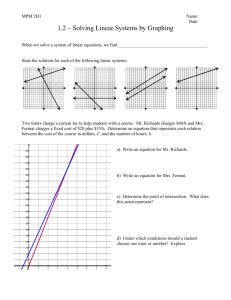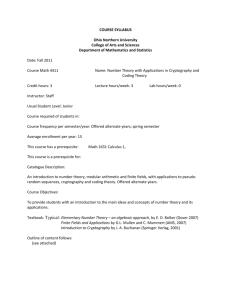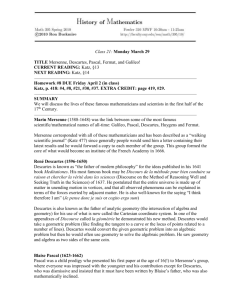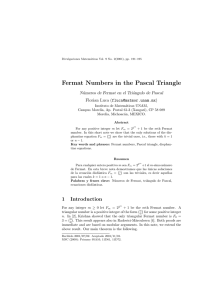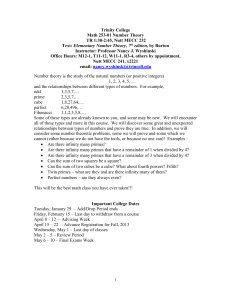Number Theory Worksheet 3 – Fermat's Conjecture
advertisement
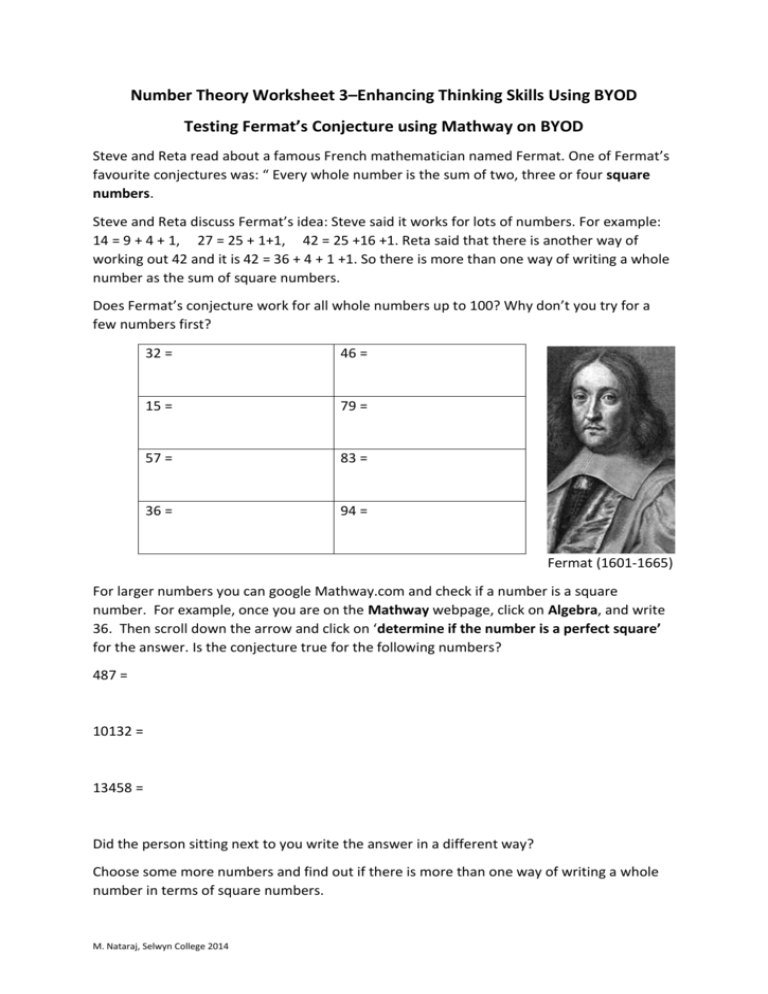
Number Theory Worksheet 3–Enhancing Thinking Skills Using BYOD Testing Fermat’s Conjecture using Mathway on BYOD Steve and Reta read about a famous French mathematician named Fermat. One of Fermat’s favourite conjectures was: “ Every whole number is the sum of two, three or four square numbers. Steve and Reta discuss Fermat’s idea: Steve said it works for lots of numbers. For example: 14 = 9 + 4 + 1, 27 = 25 + 1+1, 42 = 25 +16 +1. Reta said that there is another way of working out 42 and it is 42 = 36 + 4 + 1 +1. So there is more than one way of writing a whole number as the sum of square numbers. Does Fermat’s conjecture work for all whole numbers up to 100? Why don’t you try for a few numbers first? 32 = 46 = 15 = 79 = 57 = 83 = 36 = 94 = Fermat (1601-1665) For larger numbers you can google Mathway.com and check if a number is a square number. For example, once you are on the Mathway webpage, click on Algebra, and write 36. Then scroll down the arrow and click on ‘determine if the number is a perfect square’ for the answer. Is the conjecture true for the following numbers? 487 = 10132 = 13458 = Did the person sitting next to you write the answer in a different way? Choose some more numbers and find out if there is more than one way of writing a whole number in terms of square numbers. M. Nataraj, Selwyn College 2014 M. Nataraj, Selwyn College 2014
